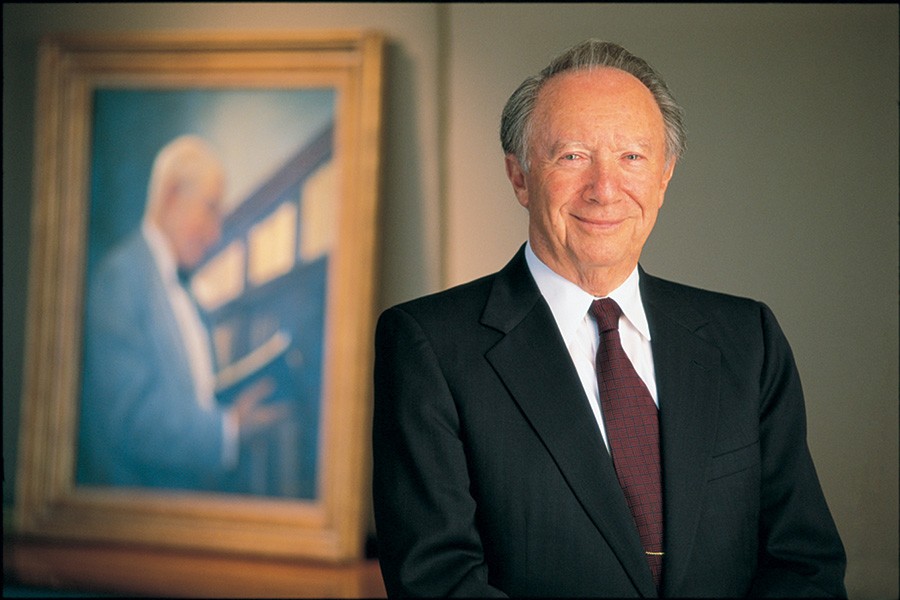Willard Hackerman, longtime president and CEO of the Whiting-Turner Contracting Co., a 1938 civil engineering graduate of Johns Hopkins, and a former university trustee, has died. He was 95.
Hackerman led the effort to reestablish the university's stand-alone engineering school in 1979 and was instrumental in securing the school-naming gift from his mentor, G.W.C. Whiting.
"Willard Hackerman was a fiercely proud alumnus who had a profound impact on our School of Engineering and our entire university," Johns Hopkins President Ronald J. Daniels says. "The integrity, humility, excellence, and humanity that were hallmarks of his leadership at Whiting-Turner also steered his work at Johns Hopkins. Our campus landscape and our academic mission both bear his fingerprints, and for that we are ever grateful."
Adds Ed Schlesinger, the Benjamin T. Rome Dean of the Whiting School, "Willard's impact on the Johns Hopkins University, and on the G.W.C. Whiting School of Engineering, has been tremendous. His professional accomplishments and his commitment to philanthropy are exemplary, and we are proud to count him among our graduates. Willard was the force behind the re-establishment of the Whiting School as a separate school of engineering and, in this role, helped provide the vision that has come to define the school today. Over the years, he has supported our faculty and has offered valued counsel and advice to my predecessors. His commitment to our students—from providing them with scholarships and internships to hiring our graduates—has provided lasting opportunities to generations of young engineers."
Hackerman and his wife, Lillian Patz Hackerman, have been ardent Johns Hopkins supporters. In 2010, the Computational Science and Engineering Building, which opened on Homewood's Decker Quadrangle in 2008 as a headquarters for advanced interdisciplinary research crossing the borders of engineering, computer science, mathematics, and medicine, was rededicated as Hackerman Hall.
In 2005, they established the Hacker?man Polytechnic Scholarships, a program providing four-year undergraduate support to graduates of Baltimore Polytechnic Institute, Hackerman's high school alma mater.
On the university's East Baltimore campus, they funded the Willard and Lillian Hackerman Chair in Radiation Oncology at the Johns Hopkins School of Medicine, construction of the Hackerman-Patz Patient and Family Pavilion, and the Hackerman Research Laboratories at the Sidney Kimmel Comprehensive Cancer Center. They also provided major support for the Robert H. and Clarice Smith Building at the Wilmer Eye Institute.
The Hackermans have been leaders in Baltimore and Maryland civic life and devoted patrons of the arts. Willard Hackerman served on the state's first Commission on Economic Development and on the Maryland Higher Education Commission. He was a member of the boards of the University of Maryland School of Medicine, the Maryland Science Center, the Baltimore Symphony Orchestra, and the Maryland Health and Higher Education Facilities Authority. He received honorary degrees from Johns Hopkins and four other educational institutions.
"On a personal level, I am deeply grateful for the friendship, advice, and counsel that he extended to me from the time I arrived in Baltimore," Daniels says. "I will sorely miss his extraordinary kindness, his large heart, and visionary leadership. He represented the best of Hopkins."








